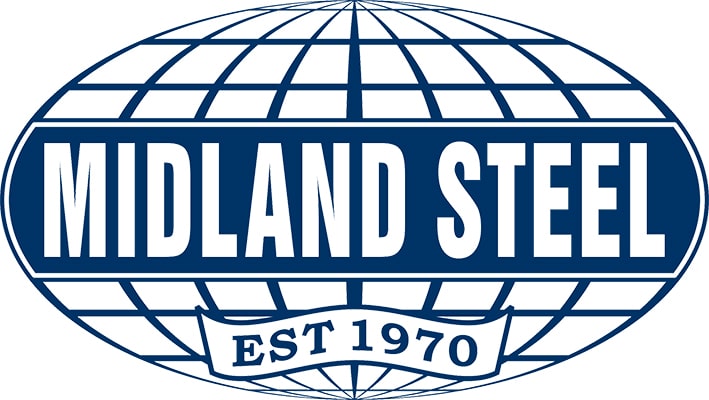Steel is a versatile material used across countless industries, from construction to manufacturing. However, not all steel is created equal. Two common types, hot rolled steel and cold rolled steel, possess distinct characteristics that dictate their suitability for specific applications. At Midland Steel, we provide a wide range of steel products and understand the importance of choosing the right material for your project. This blog will delve into the differences between hot rolled and cold rolled steel, helping you make informed decisions.
The Manufacturing Process: A Key Distinction:
The fundamental difference between hot rolled and cold rolled steel lies in their manufacturing process.
-
Hot Rolled Steel:
- As the name suggests, hot rolled steel is processed at high temperatures, typically above 1,700°F, which is the recrystallization temperature of steel.
- This process involves rolling the steel while it’s hot, allowing it to be formed into various shapes and sizes.
- As the steel cools, it shrinks slightly, resulting in less precise dimensions and a surface finish that may have some scaling or imperfections.
-
Cold Rolled Steel:
- Cold rolled steel, on the other hand, is processed at or near room temperature.
- It is typically hot rolled steel that has been further processed through cold rolling, which involves passing it through rollers at room temperature.
- This process improves the steel’s surface finish, dimensional accuracy, and strength.
Key Differences in Properties and Characteristics:
-
Surface Finish:
- Hot rolled steel typically has a rougher surface finish with mill scale, which is a dark, bluish-gray oxide layer.
- Cold rolled steel has a smoother, more refined surface finish, free from mill scale.
-
Dimensional Accuracy:
- Hot rolled steel has less precise dimensional tolerances due to the shrinking that occurs during cooling.
- Cold rolled steel offers superior dimensional accuracy, making it ideal for applications requiring tight tolerances.
-
Strength and Hardness:
- Cold rolled steel is generally stronger and harder than hot rolled steel due to the cold working process, which increases its tensile strength and yield strength.
-
Formability:
- Hot rolled steel is more formable than cold rolled steel due to its higher ductility, making it easier to bend and shape.
- Cold rolled steel due to the processes, is less ductile.
-
Cost:
- Hot rolled steel is generally less expensive than cold rolled steel due to its simpler manufacturing process.
-
Applications:
- Hot Rolled Steel: Used in construction, structural components, pipelines, and general fabrication where precise dimensions and surface finish are not critical.
- Cold Rolled Steel: Used in appliances, automotive parts, furniture, and other applications requiring a smooth surface finish, tight tolerances, and high strength.
Choosing the Right Steel for Your Project:
The choice between hot rolled and cold rolled steel depends on the specific requirements of your project.
- If you need a cost-effective material for structural applications where dimensional accuracy and surface finish are not crucial, hot rolled steel is a suitable choice.
- If your project requires a smooth surface finish, tight tolerances, and high strength, cold rolled steel is the preferred option.
Midland Steel: Your Trusted Steel Supplier:
At Midland Steel, we offer a comprehensive range of steel products, including both hot rolled and cold rolled steel. Our commitment to quality and customer service ensures that you receive the right materials for your project.
We understand the importance of selecting the appropriate steel for your application and are here to provide expert guidance and support.
Understanding the differences between hot rolled steel and cold rolled steel is essential for making informed decisions about your projects. Whether you require the cost-effectiveness of hot rolled steel or the precision of cold rolled steel, Midland Steel has you covered.
Contact Midland Steel today to learn more about our steel products and how we can assist you with your project needs.

Recent Comments